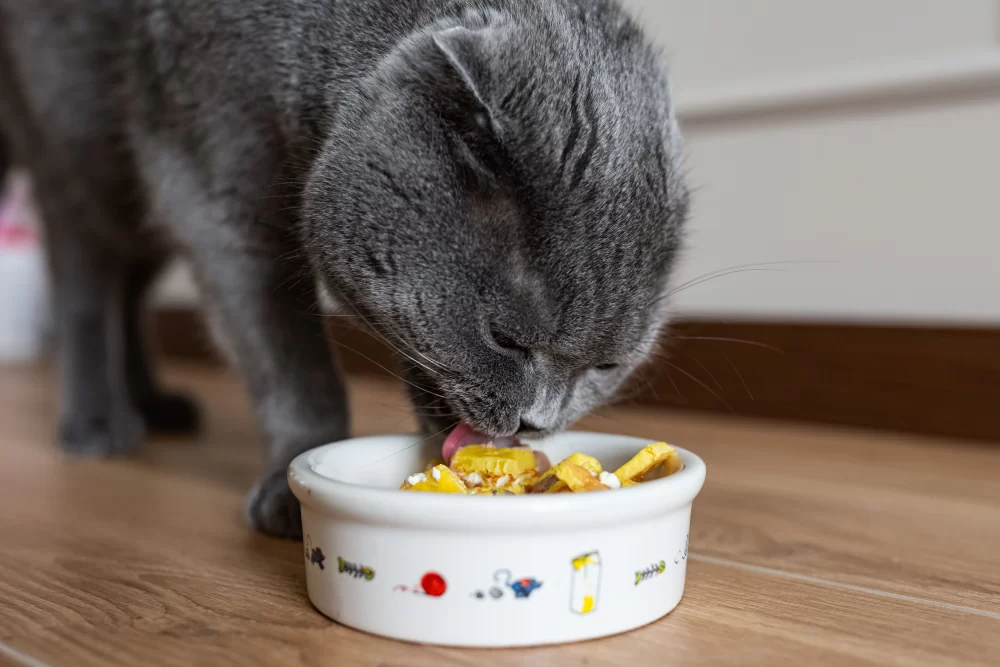- Homemade-Treats-for-Diabetic-Cats
- Understanding-Special-Diets-for-Diabetic-Cats
- Nutritional-Considerations-and-Ingredients
- Practical-Recipes-and-Feeding-Tips
- Real-Life-Examples-and-Expert-Advice
1. Homemade Treats for Diabetic Cats: Why They Matter
When it comes to caring for diabetic cats, the importance of diet cannot be overstated. Unlike conventional treats available on the market, which often contain sugars or fillers harmful to diabetic felines, homemade treats allow owners to control every ingredient. This personalized approach helps maintain stable blood glucose levels and supports overall health.
Homemade treats provide a unique opportunity to tailor snacks to fit the strict nutritional needs of diabetic cats, avoiding unnecessary carbohydrates and harmful additives. Crafting these treats at home not only ensures safety but can also strengthen the bond between owner and pet, as cats appreciate the special attention in their diet.
In addition, making homemade treats is often more cost-effective and flexible, allowing owners to adjust recipes based on their cat’s preferences and health condition. For those unsure about ingredients or preparation methods, consulting a veterinary professional or trusted resource such as Hidden Brook Veterinary can provide tailored recommendations and suitable products.
1.1 The Challenge of Diabetic Cat Treats
Diabetic cats require treats that do not spike blood sugar. Many commercial products fail this requirement due to hidden carbohydrates or sugars, making homemade treats a safer alternative. By carefully selecting low-carb, high-protein ingredients, you can create delicious snacks that align with your cat’s dietary needs.
2. Understanding Special Diets for Diabetic Cats
A diabetic cat’s diet is not just about treats—it involves a holistic nutritional strategy. Special diets focus on balancing macronutrients to reduce glucose spikes and improve insulin sensitivity. Typically, these diets emphasize high protein and low carbohydrate content, sometimes supplemented with specific nutrients to support pancreatic health.
It’s essential to understand how diet interacts with your cat’s diabetes treatment plan. Many veterinarians recommend prescription diabetic diets designed to stabilize blood sugar, but some owners prefer or complement these with homemade food options.
2.1 Key Components of Special Diets
The fundamental elements in a diabetic cat diet include:
- High-quality protein: Helps maintain muscle mass and supports metabolic health.
- Low carbohydrates: Reduces blood sugar spikes and insulin demand.
- Moderate fat levels: Provide energy without excessive calories.
- Fiber: Can aid in digestion and blood sugar regulation.
These components together form the backbone of effective diabetic management through diet.
2.2 The Role of Veterinary Guidance
Diet adjustments must be made carefully under veterinary supervision. Sudden changes or inappropriate food choices can lead to dangerous hypoglycemia or poor diabetes control. Veterinary nutritionists and clinics like Hidden Brook Veterinary offer invaluable support in customizing a diet plan and recommending suitable treat options.
3. Nutritional Considerations and Safe Ingredients
Creating homemade treats requires a detailed understanding of feline nutritional needs, especially for diabetic cats. The focus is on ingredients that deliver essential nutrients without negatively impacting glucose levels.
3.1 Safe Ingredients to Include
Some ideal ingredients for diabetic cat treats are:
- Lean meats: Chicken, turkey, or rabbit provide high-quality protein.
- Fish: Rich in omega-3 fatty acids, beneficial for inflammation.
- Eggs: An excellent protein source with minimal carbs.
- Vegetables: Small amounts of safe veggies like pumpkin or zucchini for fiber.
3.2 Ingredients to Avoid
Common human food ingredients and commercial treat additives can be harmful:
- Sugars and sweeteners
- Grains and high-carb fillers such as corn, wheat, and rice
- Onions, garlic, or other toxic foods
- Excessive fats or preservatives
Careful ingredient selection reduces the risk of blood sugar fluctuations and other complications.
4. Practical Recipes and Feeding Tips for Diabetic Cats
Below is a simple, vet-approved homemade treat recipe designed specifically for diabetic cats. This recipe balances protein and fiber without unnecessary carbohydrates.
4.1 Example Recipe: Chicken and Pumpkin Bites
- Ingredients:
- 1 cup cooked lean chicken, shredded
- 2 tablespoons pure pumpkin puree (unsweetened)
- 1 egg
- 1 tablespoon oat fiber (optional, for texture)
- Instructions:
- Preheat oven to 350°F (175°C).
- Mix all ingredients thoroughly in a bowl.
- Form small bite-sized balls and place them on a parchment-lined baking tray.
- Bake for 15-20 minutes until firm.
- Allow to cool before serving.
This recipe is low in carbohydrates and rich in protein, ideal for diabetic cats. Treats can be stored in the refrigerator for up to 3 days or frozen for longer storage.
4.2 Feeding Tips
Feed treats sparingly and always factor them into your cat’s overall daily calorie and nutrient intake. Observe your cat’s reaction to new treats and monitor blood glucose levels closely after introducing any homemade snack. Regular communication with your veterinarian is crucial to ensure dietary adjustments support your cat’s health.
5. Real-Life Examples and Expert Advice
One inspiring story comes from a cat owner who struggled to find suitable treats for her diabetic cat, Max. After switching to homemade treats with careful ingredient control, Max’s blood sugar levels stabilized significantly, and he became more energetic. This change was only possible through consultation with her veterinary clinic, which recommended recipes and diabetic diet guidelines tailored to Max’s needs.
Experts agree that managing feline diabetes is a multifaceted process where diet plays a vital role. Beyond prescription diets, homemade treats crafted with care can enhance quality of life and help maintain stable glucose levels.
If you are navigating the challenges of diabetic cat care, resources like Hidden Brook Veterinary offer specialized advice and products designed for diabetic and special diet cats. Their expertise can help you find the right balance between medication, diet, and lifestyle for your feline companion.












